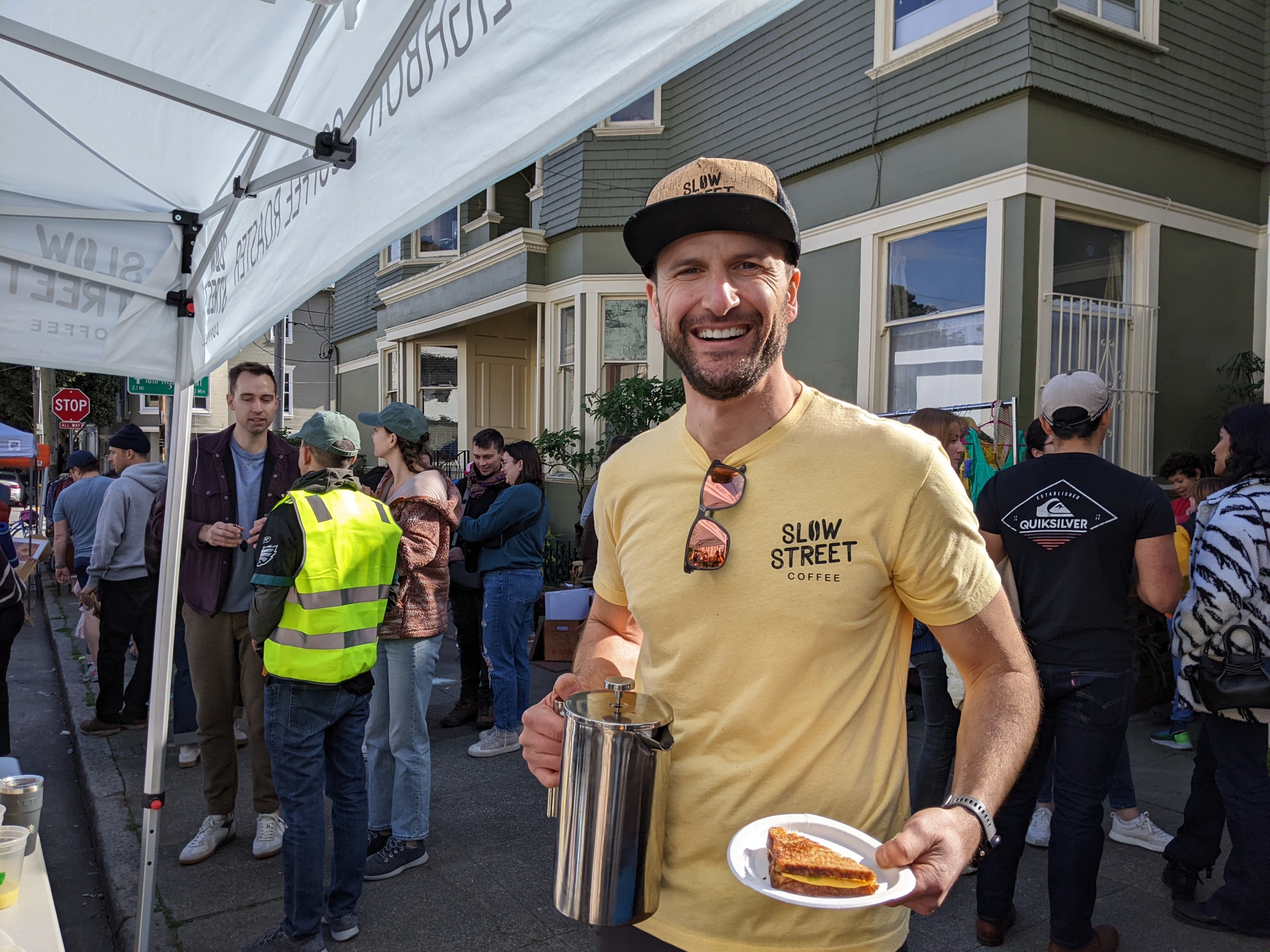It started as a coffee hobby. But when the pandemic hit, electrical engineer and north-of-the-panhandle resident Zaid Zayouna figured it could become something more. "I started experimenting with being the 'milkman for coffee,' bringing coffee to my neighbors," he told Streetsblog.
That eventually grew into Zayouna buying a coffee shop on two wheels (see image below) and basing his new side hustle on the city's then-new 'slow streets' program. "The light bulb came on that it should be called 'slow streets' coffee," he said.
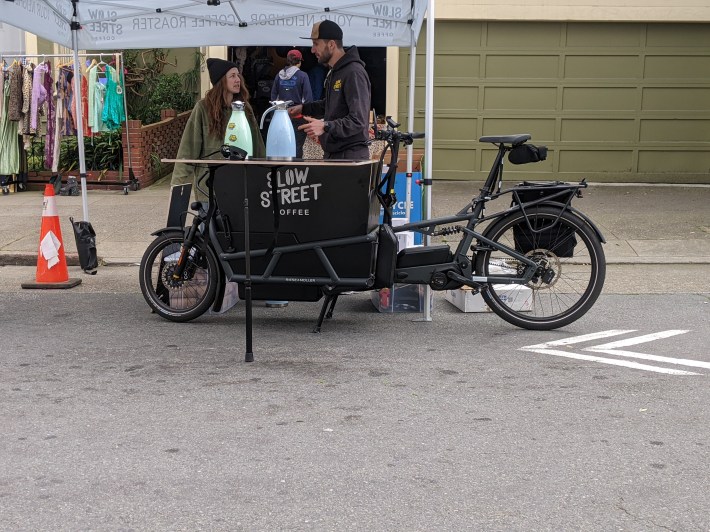
Now Zayouna roasts coffee in Berkeley and bikes (and BARTs) around to different slow streets events to sell his brew. Streetsblog caught up with him at a recent open streets event on Slow Page.
"People on these slow streets just feel the energy," said Zayouna. "People feel more connected with each other and the neighborhood." He added that he sees families meeting up, making play dates for kids, and just generally creating a sense of community that didn't exist when the streets were just another thoroughfare for drivers.
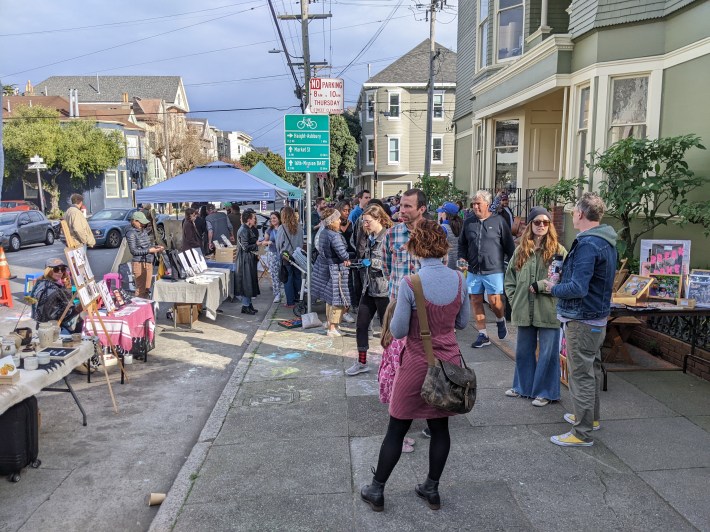
Connections, exchanges of products and information, and a sense of community is what city streets were about traditionally. Look at any historic photos of the streets in San Francisco or any other city and people are interacting, selling things, etc. It wasn't until the age of the automobile that streets became unavailable for anything other than transportation. This shift back to their earlier uses is opening up lots of possibilities.
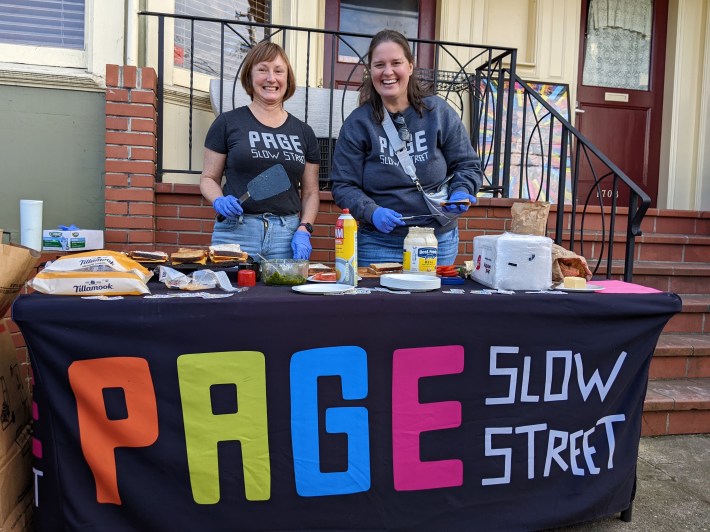
At the event on Page, artists were showing their wares, people were playing music, and others were trying out their skills at new businesses. For example, dovetailing with Zayouna was Nick Cheung, a robotics software engineer who has his own side hustle—trying to create a San Francisco bagel that rivals those of New York or Philadelphia, where he grew up.
"They talk about the water to recreate a great bagel," said Cheung of 'Tutu's Bagels,' as he calls his budding business. "But that's misguided. To make a great San Francisco bagel you just have to adapt to the conditions here." He explained that he mills his own barley for the bagels and uses local ingredients.
He's a few years behind Zayouna, but who knows where this bagel side hustle will go? For now, "my profit margin is terrible," said Cheung.
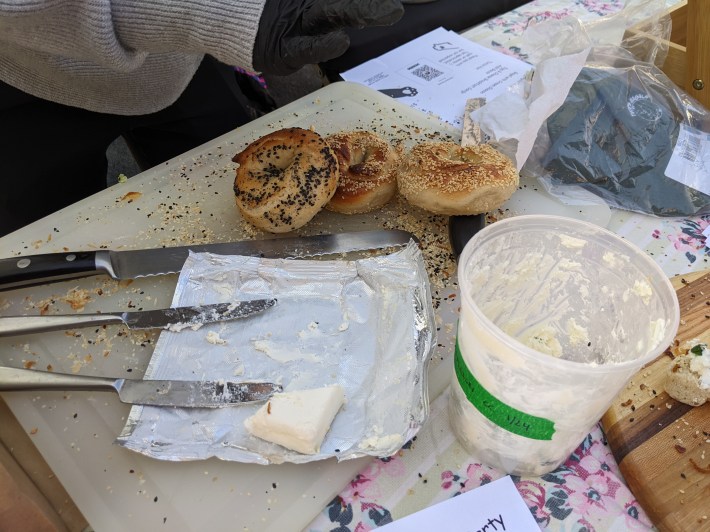
[Sorry readers, but at this point in the interviews I had a bagel sample and was temporarily unable to concentrate or take notes. OMG those bagels are yummy. Okay, back to the story.]
More bagels, more coffee, more music, more slow streets please.
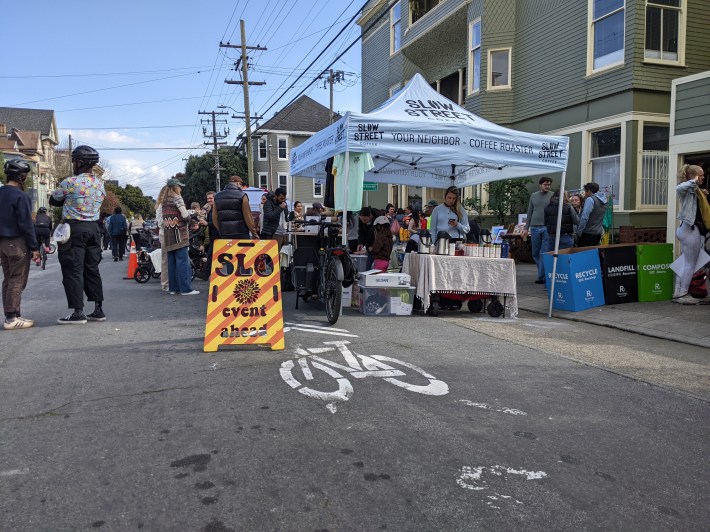
"I don't know where this is going. It continues to evolve and I've been trying to be more intentional and leaning into the slow streets activations," said Zayouna. "It's bringing me and others in the neighborhood so much joy."
For more on Zayouna and slow streets, check out last spring's North of Panhandle Neighborhood Association newsletter.
